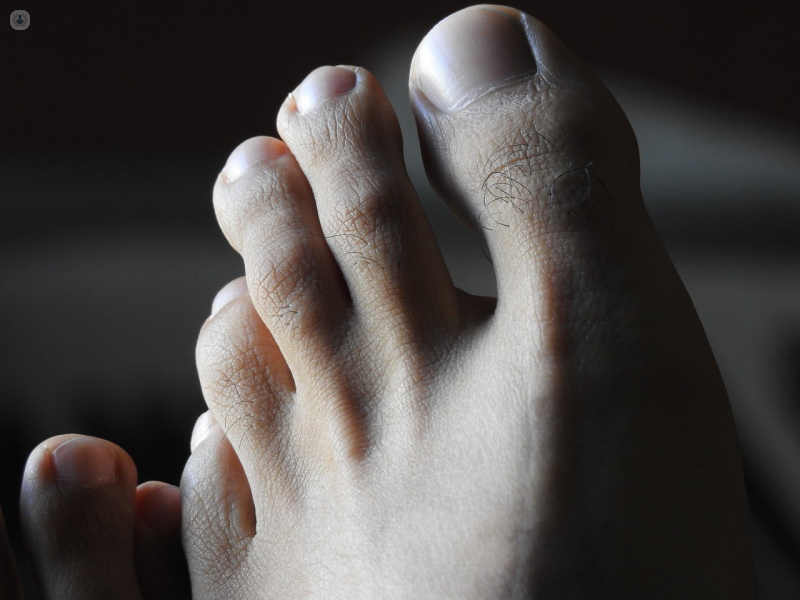How to prevent painful ingrown toenails
Written in association with:An ingrown toenail can be a painful and frustrating condition, often causing discomfort and, in severe cases, infection. Understanding its causes and implementing preventive measures can help individuals avoid this common foot ailment and maintain optimal foot health. In his latest online article, Dr Andrew Burgess gives us his insights.

What is an ingrown toenail?
An ingrown toenail occurs when the edges of the nail grow into the surrounding skin, leading to inflammation, redness, and tenderness. In more severe instances, it can result in puss formation and bleeding. While the big toe is the most commonly affected, any toe can be susceptible to this condition.
Causes of ingrown toenails
Numerous elements play a role in the formation of ingrown toenails:
Heredity: Some individuals inherit a predisposition to ingrown nails.
Trauma: Physical trauma to the toe, such as stubbing or pressure from external objects, can cause ingrown toenails.
Improper trimming: Cutting nails too short or curving them improperly can encourage the surrounding skin to grow over the nail.
Incorrect footwear: Shoes that are too tight or short can push toe flesh onto the nail, leading to ingrowth.
Genetic factors: Posture, gait, foot deformities (e.g., bunions, hammer toes), and natural nail shape can all contribute to ingrown toenails.
Prevention tips
Avoiding ingrown toenails requires embracing correct foot care routines:
Trim nails correctly: Cut nails straight across and avoid curving them to the shape of the toe. Additionally, ensure nails are trimmed to be even with the tips of the toes.
Avoid over-trimming: Cutting nails too short increases the risk of ingrowth. Trim nails to an appropriate length to prevent pressure from shoes forcing the nail into the tissue.
Choose proper footwear: Opt for shoes that fit well and don't exert excessive pressure on the toes. Avoid tight or narrow shoes that can squeeze the toes.
Wear protective footwear: If engaged in activities that pose a risk of toe injury, such as construction work or sports, wear protective footwear like steel-toed shoes.
Regular foot checks: Individuals with diabetes should inspect their feet daily for signs of ingrown toenails or other foot issues. Diabetes can impair sensation in the feet, making it essential to be vigilant about foot health.
By understanding the causes and implementing preventive measures like proper nail trimming, wearing suitable footwear, and regular foot checks, individuals can significantly reduce their risk of developing this common foot condition. Prioritising foot health through proactive care can contribute to overall well-being and mobility.
You can schedule an appointment with Dr Burgess on his Top Doctors profile.


